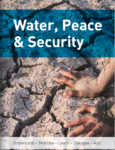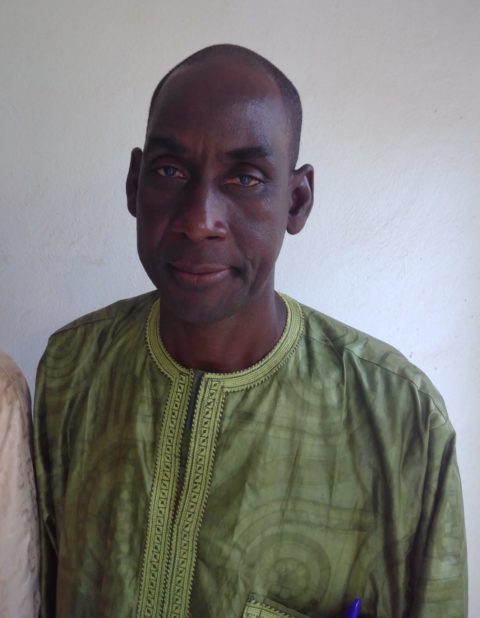
Water, Peace and Security leaflet
downloadGlobal S&T Development Trend Analysis Platform of Resources and Environment
| Water, Peace and Security partnership: Addressing human security risks related to water in Mali | |
| admin | |
| 2019-02-15 | |
| 发布年 | 2019 |
| 语种 | 英语 |
| 国家 | 国际 |
| 领域 | 地球科学 |
| 正文(英文) | Violent conflict in Mali’s Inner Niger Delta has risen alarmingly since 2015. The new year started with 37 casualties in Mali’s central Mopti region. According to the UN, hundreds have been killed as Fulani herders and Bambara and Dogon farmers fight over land and water resources in the center of the country. On 17 January 2019, local leaders, national and international government representatives, and civil society met to discuss how water, peace, and security are related to each other in Mali. This marked the launch of the Water, Peace and Security Partnership in Mali. The aim of the partnership is to prevent or mitigate human security risks related to water. The Inner Niger Delta in Mali is the second largest wetland in Africa. Thousands of people depend on the natural resources of the delta to make a living. Watergrass, for example, provides essential fodder for cattle and watergrass fields (bourgoutières) serve as a nursery for fish. However, over the four last decades, many bourgoutières have been lost, affecting the livelihoods of herders and fishermen and women. Good management of natural resources is key to resolve conflicts within and among different user groups and prevent violence within and within communities. Which borders need to be respected to safeguard land and water for agriculture, pastoralism, and fishing? Which herders have the first rights to new pasture and what are the costs? What corridors should farmers respect so as to allow cattle to pass?  Screenshot of a propaganda video of the Support Group for Islam and Muslims (GSIM or JNIM Jamā’at Nusrat al-Islām Wa-l-Muslimīn in Arabic) showing jihadist fighters on motorcycles in the center of Mali. This photo is taken from a report by FIDH on terrorism in Mali.
Conflicts in the Inner Niger Delta are not only related to the management of natural resources, but they are also political. Boubacar Ba, an expert in conflict resolution in Bamako and advisor of the Water, Peace, and Security partnership, points at the justice system and the State Forest Service. The justice system is accused of corruption and has created a lot of frustration with vulnerable groups. The Forest Service, who is responsible for protecting the environment and conservation of natural resources, is widely accused of exploitation of women and pastoralists[1]. Ba comments: “Many young herders feel ignored by the state. Some join radical Islamist groups that have emerged in the delta in order to protect themselves, their families and their herds. These groups denounce corruption, call for equality and justice based on the sharia law, provide jobs and address concerns of local communities.” Besides the radical Islamist groups, there are also militia and self-defense groups of communities. “Frustration within communities results in the creation of an imaginary enemy and intervention in communal conflicts through the punitive expedition. And there is banditism and criminalism.” Ba also points at the current role of the government and the international community which is now focused on the armed struggle against jihadist groups instead of addressing the grievances of the local population in relation to access to natural resources.  Hamsala Bocoum, the regional representative of Tabital Pilaaku, the main Fulani group in Mali, says: “The Inner Niger Delta is a ticking bomb”. While the conflict in the Inner Niger Delta is not only driven by degradation and loss of natural resources, further degradation of ecosystems will fuel the fire. Hamsala Bocoum, the regional representative of Tabital Pilaaku, the main Fulani group in Mali, says: “The Inner Niger Delta is a ticking bomb”. New infrastructure upstream will reduce the size of the inundated area of the Inner Niger Delta which will result in fresh loss of bourgoutières. If there are no changes in other factors driving conflicts in the centre of Mali, this will is likely to spark more violence. The Water, Peace and Security Partnership aims to better understand the risks of water-related security threats, to mobilise decision makers, to build capacities and to bring together stakeholders at international, national and sub-national levels, so as to mitigate tensions and pave the way for agreed and informed solutions. This is not an easy task. However, it is essential to save lives and nature in Mali. [1] Tor A Benjaminsen, Boubacar Ba: Why do pastoralists in Mali join jihadist groups? A political ecological explanation, The Journal of Peasant Studies Volume 46, 2019 – Issue 1 About the partnershipThe Water, Peace, and Security partnership is a collaboration among an expanding group of organisations supported by The Netherlands Ministry of Foreign Affairs. Current partners are: IHE Delft (lead), World Resources Institute, Deltares, The Hague Centre for Strategic Studies, Wetlands International, and International Alert. WPS aims to trigger evidence-based action to prevent or mitigate human security risks. For more information see the leaflet below:  Water, Peace and Security leaflet download |
| URL | 查看原文 |
| 来源平台 | Wetlands International |
| 文献类型 | 新闻 |
| 条目标识符 | http://119.78.100.173/C666/handle/2XK7JSWQ/101831 |
| 专题 | 地球科学 |
| 推荐引用方式 GB/T 7714 | admin. Water, Peace and Security partnership: Addressing human security risks related to water in Mali. 2019. |
| 条目包含的文件 | 条目无相关文件。 | |||||
| 个性服务 |
| 推荐该条目 |
| 保存到收藏夹 |
| 查看访问统计 |
| 导出为Endnote文件 |
| 谷歌学术 |
| 谷歌学术中相似的文章 |
| [admin]的文章 |
| 百度学术 |
| 百度学术中相似的文章 |
| [admin]的文章 |
| 必应学术 |
| 必应学术中相似的文章 |
| [admin]的文章 |
| 相关权益政策 |
| 暂无数据 |
| 收藏/分享 |
除非特别说明,本系统中所有内容都受版权保护,并保留所有权利。
修改评论